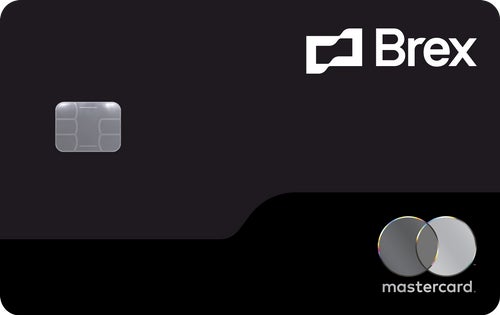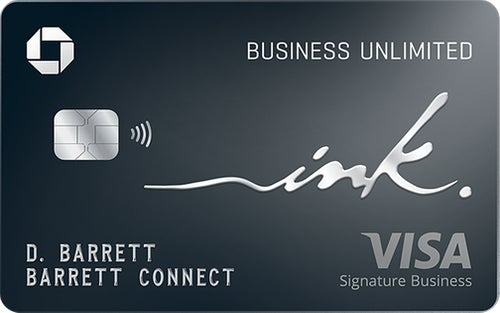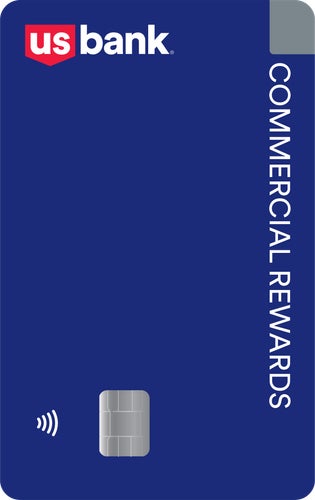| Business Rating: | 2.5 / 5 |
| Rewards Value | 2.0 |
| Annual Percentage rate | 5.0 |
| Rewards flexibility | 2.0 |
| Features | 2.0 |
In a Nutshell:
The U.S. Bank Commercial Rewards Card is a great tool for larger businesses to automate expenses and free up time.
Rewards Rate
|  |
Sign-up Bonus None |  |
Annual Bonus None |  |
Annual Fee No annual fee for free plan. Paid plan available.
|  |
APR N/A |  |
Citi Customer Service Ratings
|  |
Other Notable Features
- $10 million to $150 million annual revenue requirements
- Automated expense and travel management tools
The U.S. Bank Commercial Rewards Card offers an easier way for corporate customers to manage their expense management and business travel needs. In collaboration with TravelBank, the card helps businesses save time by integrating with common HR and accounting software, and consolidating expense and travel management with a straightforward all-in-one platform.
You can track and customize every aspect of your business, such as employee spending controls, travel policies or automating and categorizing expenses. The card’s goal is to maximize efficiency by giving you back time to grow your business instead of focusing on mundane tasks.
While there’s no personal liability with the card, your business needs to make between $10 million and $150 million annually to qualify, and must spend $150,000 per quarter to be eligible for a rewards rate that falls short of most business cards.
Pros
- There’s no annual fee with this card.
- Automated expense and travel management can provide significant time savings.
- Access to real-time data can provide immediate insight to help grow your business.
Cons
- Reward rates are poor and require significant spending to earn.
- Since this is a charge card, you must pay your balance in full every month.
- There’s no travel or lifestyle perks to supplement the travel management features.
Why you might want the U.S. Bank Commercial Rewards Card
The U.S. Bank Commercial Rewards Card is ideal for a larger business or corporation that wants some help managing expenses and travel more efficiently. Here are a couple reasons why you might want the card.
Straightforward management tools
One of the card’s best features is how it can reduce time-consuming manual tasks related to expense management and travel arrangements. Through its partnership with TravelBank and seamless integration with popular accounting and HR software, businesses can quickly and efficiently manage travel, categorize expenses and set employee controls through automation. By integrating features in an all-in-one interface that’s simple to use, your business gets the reward of time to use however it sees fit.
No personal guarantee
This corporate charge card doesn’t require a personal guarantee if the business fails, unlike many small business cards. Your business must meet high eligibility requirements for annual revenue to even qualify for the card, which also serves as a guarantee instead of placing the burden on the cardholder.
Why you might want a different card
Although the U.S. Bank Commercial Rewards Card is great for organizing and streamlining your business tasks, it’s a weak choice for rewards and spending compared to other business cards.
Poor rewards rate with high spending requirements
While you get the option of earning points or cash rewards with this card, the 1X or 1 percent earning rates are poor compared to any card, even those for fair credit. To make the value even worse, your business is required to spend $150,000 quarterly to qualify for earning rates. If you fall short, you earn nothing.
There’s no way to spin it: That’s a terrible value proposition. You have to average $50,000 in spending per month, and if you just meet the quarterly requirement, you’ll only earn $1,500 per quarter. If your business spends that much, many business cards can provide a significantly higher return without such a heavy restriction.
Can’t carry a balance
Since the card is a charge card, you aren’t able to carry a balance on the card and must pay in full each month. Coupled with the high quarterly spending requirements, this can put the squeeze on your business finances. Although this is relatively common with corporate cards, it can be severely limiting on how you spend.
How does the U.S. Bank Commercial Rewards Card compare to other business cards?
The U.S. Bank Commercial Rewards Card is a great organizational tool, but leaves much to be desired in terms of rewards. Here are some other options to consider.
| U.S. Bank Triple Cash Rewards Visa® Business Card* |  Brex Card |  Ink Business Unlimited® Credit Card |
|---|---|---|
Rewards rate
| Rewards rate
| Rewards rate
|
| Welcome bonus Earn $750 in cash back. Just spend $6,000 on the Account Owner’s card in the first 180 days of opening your account. 0% intro APR on purchases and balance transfers for 12 months (then 17.24% to 26.24% variable APR) | Welcome bonus | Welcome bonus |
| Annual fee: $0 | Annual fee:$0 | Annual fee: $0 |
Other things to know
| Other things to know
| Other things to know
|
U.S. Bank Commercial Rewards Card vs. U.S. Bank Triple Cash Rewards Visa® Business Card
If you like the U.S. Bank ecosystem, you might consider the U.S. Bank Triple Cash Rewards Visa® Business Card. There’s no spending floor to earn 1 percent on purchases, plus you can earn bonus rates in helpful business categories. Prepaid hotel and car rental bookings through the issuer portal also earn 5 percent cash back and you’ll get a credit for a recurring software subscription, which you can use for many expense management tools. By sacrificing a bit of automation, you can earn significantly higher cash rewards.
U.S. Bank Commercial Rewards Card vs. Brex Card
If your business needs a corporate credit card, the Brex Card might be a viable option. You’ll only need $50,000 in a business checking account to qualify and the card shares many similar automated expense management features. You can also earn substantial rewards in many business categories, which you can bump up even more if you make daily payments. While the Brex Card requires you to be a bit more tech-savvy to take advantage, it can be a much more lucrative corporate card option.
U.S. Bank Commercial Rewards Card vs. Ink Business Unlimited® Credit Card
If you are a small business owner or sole proprietor, the Ink Business Unlimited® Credit Card is an ideal option if you’re looking for simplicity. You’ll earn a higher flat rate on purchases with no spending floor or earning caps. You can also take advantage of an excellent welcome offer and an intro APR to give you some breathing room on larger purchases or startup costs. While it doesn’t have the expense management features of the Commercial Rewards Card, it’s much better suited for business owners seeking rewards.
How to use the U.S. Bank Commercial Rewards Card
- Customize and automate your expense and travel management features.
- Make sure you spend $150,000 per quarter to earn rewards.
- Don’t spend more than you can pay each month.
Is the U.S. Bank Commercial Rewards Card right for you?
If you spend more time than you’d prefer organizing expenses and travel for your business, the U.S. Bank Commercial Rewards Card could be a significant time-saver. However, if you want to generate more rewards for your spending, consider any number of other business card options, almost all of which have better reward structures.
*The information about the U.S. Bank Commercial Rewards Card, U.S. Bank Triple Cash Rewards Visa® Business Card andBrex Card has been collected independently by Creditcards.com. The card details have not been reviewed or approved by the card issuer.
Frequently Asked Questions
All reviews are prepared by CreditCards.com staff. Opinions expressed therein are solely those of the reviewer and have not been reviewed or approved by any advertiser. The information, including card rates and fees, presented in the review is accurate as of the date of the review. Check the data at the top of this page and the bank’s website for the most current information.
Responses to comments in the discussion section below are not provided, reviewed, approved, endorsed or commissioned by our financial partners. It is not our partner’s responsibility to ensure all posts or questions are answered.
